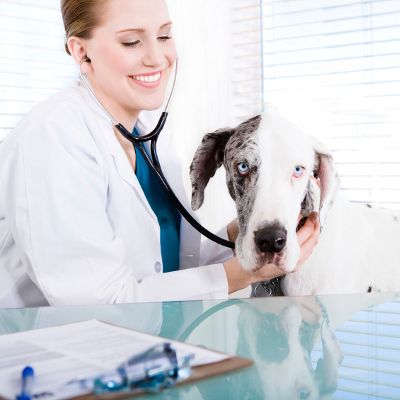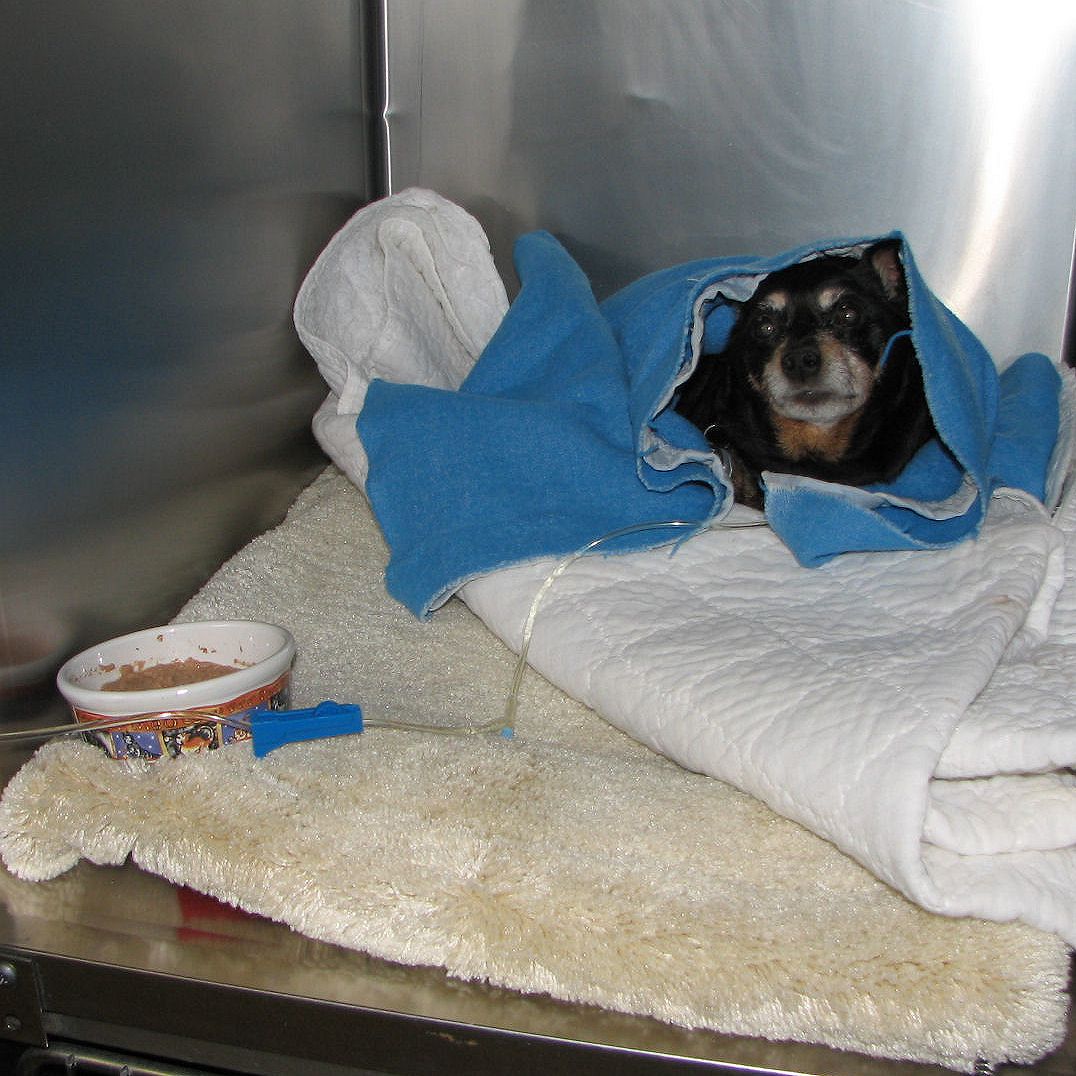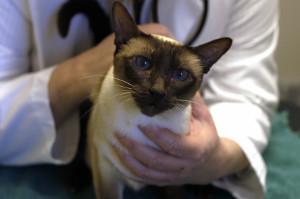Dogs and cats are prone to a variety of contagious diseases, just like humans. The best way to protect your pet from these often fatal illnesses is to have him vaccinated. Over the past few years, vaccination protocols have changed within the veterinary community, for both dogs and cats. While vets used to recommend yearly vaccinations for a number of diseases, many are now reducing the frequency that vaccines are given. This applies to what vets call "core" vaccines--those vaccinations that are required for all dogs and cats, as well as non-core vaccines, which are only needed under certain circumstances..
Vaccines for Dogs
These days, veterinarians at the University of California at Davis School of Veterinary Medicine in Davis, Calif., are recommending core vaccines for puppies, and dogs with unknown vaccination history. These vaccines are designed to guard against the following diseases:
-
 Canine parvovirus. A highly contagious virus that attacks the dog's intestinal tract and white blood cells, and ultimately damages the heart. Puppies are most susceptible to the effects of parvovirus, and often die from the disease.
Canine parvovirus. A highly contagious virus that attacks the dog's intestinal tract and white blood cells, and ultimately damages the heart. Puppies are most susceptible to the effects of parvovirus, and often die from the disease. - Canine distemper virus. This highly contagious disease attacks the dog's digestive tract, respiratory tract and nervous system. Puppies and adult dogs with compromised immune systems usually die from the disease.
- Canine ardenovirus. The canine version of hepatitis, this virus starts in the respiratory tract and eventually causes serious damage to the liver.
- Rabies. Everyone has heard about rabies, and with good reason. This virus causes fatal inflammation of the brain, and can infect humans as well as other mammals.
Non-core vaccines for dogs include inoculation against canine parainfluenza virus, canine influenza virus, and Bordetella, to name a few. Your veterinarian can advise you on which vaccines your dog should get based on where you live, his age, and other risk factors.
Vaccines for Cats
The University of California at Davis School of Veterinary Medicine recommends three core vaccines for kittens and cats. These vaccines are designed to protect felines from the following diseases:
-
 Feline Herpesvirus 1. This illness is highly contagious, and affects the cat's upper respiratory system and eyes. Severe cases can result in blindness and secondary infections.
Feline Herpesvirus 1. This illness is highly contagious, and affects the cat's upper respiratory system and eyes. Severe cases can result in blindness and secondary infections. - Feline Calicivirus. Another highly contagious respiratory virus, this illness causes eye and nasal discharge, as well as ulcers on the tongue and intestinal tract. Young kittens are most susceptible to this disease, which can be fatal.
- Feline Panleukopenia. The feline version of distemper, this virus affects the cat's digestive and nervous systems. It is highly contagious, and can cause death in cats due to the secondary illnesses that often result.
The veterinary school at Davis also recommends non-core vaccines for certain cats, depending on their individual circumstances. These vaccines include feline leukemia virus, feline immunodeficiency virus, virulent FCV, Chlamydia felis, and Bordetella bronchiseptica. Your veterinarian can tell you if your cat needs any of these vaccines.
Vaccine Questions
Vaccines can be confusing, and pet owners often have questions about this aspect of their animal's care. Here are some of the more common vaccine questions among pet owners:
What's the difference between a dead and a live vaccine?
Live vaccines contain a weakened version of the disease virus or bacteria. The weakened organism can't cause disease. Live vaccines are very similar to a natural infection, which makes them very effective on immune system. Dead, or inattentuated, vaccines contain a version of the virus or bacteria that has been killed, making the vaccine safer since there is no way the organism can possibly revert back to its dangerous form. These vaccines produce a weaker immune system response, and so are generally less effective.
How often are vaccines needed?
Veterinarians follow an established protocol in recommending the frequency of vaccines. This depends on the age and condition of the pet. Your dog or cat should receive a yearly check up from a veterinarian, and during that visit, your vet will talk to you about your pet's lifestyle and help you determine whether vaccinations are needed that year.
 Do vaccines always work?
Do vaccines always work?
No vaccine comes with a 100% guarantee, but inoculating your pet can help ward off an illness that can be potentially fatal. Following the vaccine protocol recommended by your veterinarian helps to increase the efficiency of the vaccine.
Are vaccines dangerous?
Vaccines do come with some risks. Some cats are prone to a vaccine-associated sarcoma, which is a cancerous tumor at the site of the vaccine. Other risks for both dogs and cats include temporary fever and lethargy or an allergic reaction. Your pet may also have some pain and swelling at the vaccine site. Despite these risks, most veterinarians recommend regular vaccines, pointing out that the benefits outweigh the risks.








